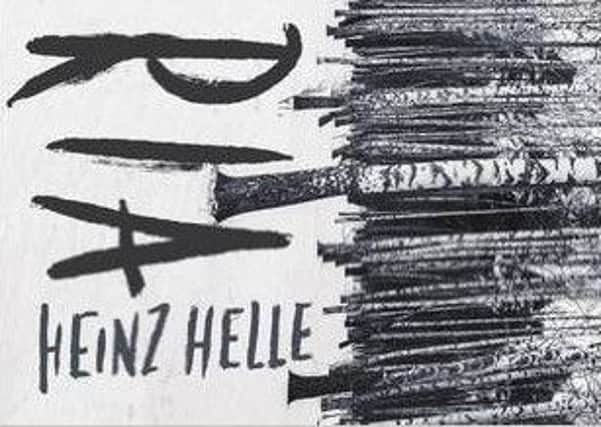Book review: Euphoria, by Heinz Helle


Having survived some kind of unspecified apocalypse, the book’s narrator and his four friends find themselves roaming around the Austrian Alps, trekking from one ruined, deserted settlement to another, searching for shelter and scavenging for food. A concordance might show that the word “nothing” appears more frequently here than it does in King Lear; in this, and in many other respects, Euphoria is a nihilist’s dream.
In a scene that almost counts as light relief compared to everything else, one of the party finds a headless crow, skewers it with a stick and cooks it over a smoky and ineffective fire. When dinner is eventually served, the narrator notes that “the lukewarm, semi-putrid bird tastes lukewarm and semi-putrid.” Yep, that’s about as upbeat as things get in Euphoria, which succeeds in making The Road seem like a Disney cartoon by comparison. But this isn’t simply an exercise in mindless reader torture – there’s method in all the morbidity; Helle is putting us through the wringer for a reason.
Advertisement
Hide AdShort, impressionistic chapters flit backwards and forwards between the post-apocalyptic present and the pre-apocalyptic past. Before the great, unexplained conflagration that appears to have brought about the end of human civilisation, at least in Central Europe, the narrator and his four childhood friends – all male – were on holiday together in a remote mountain chalet. Even then, however, things were far from perfect. The narrator remembers that when they arrived at their rural idyll they first ate a meal and then “began to wait for the weekend to be over.” As the friends have grown older, the narrator observes, they have also grown apart: “We had lost some part of the unquestioned naturalness with which we used to sit, stand, walk and run together.”
Fastforward to the book’s shattered present, however, and in spite of all the horrific things the men have been forced to see and do, and in spite of the utter hopelessness of their situation, they at least seem to have found a more natural way of coexisting. As they trudge down a snow-covered mountainside, having just survived a freezing cold night in a deserted ski station, we are told that “now there was no greater comfort than the sight of a familiar back”. Later, as hunger and fatigue take their toll, the men “have become a single will distributed among several bodies.” In an echo of Superabundance, Helle seems to suggest that the complexity of modern society somehow prevents us from relating to others as we might have done in the past; remove all this complexity, however, and put people in a situation where they are forced to live as hunter-gatherers once again, and they will quickly rediscover the sense of community and common purpose that will give them the best chance of survival.
If all this makes Euphoria sound overly simplistic, rest assured that this is merely an overarching psychological framework within which more interesting and complicated dynamics play out. Helle is an astute predictor of human nature, and part of the reason this book is so haunting is because his characters all react to their constantly-deteriorating circumstances in entirely believable though by no means predictable ways. Euphoria may not take long to read, but it will certainly take a long time to forget.
*Euphoria by Heinz Helle, Serpent’s Tail, 312pp, £11.99